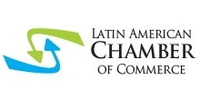When
Wednesday, July 29, 2020 (9:00 AM - 10:00 AM)GMT+8
Event Details
Latin America was the last region to be affected by COVID-19, now its the global epicenter (along with USA) and seems to be last one to recover.
The human lost has been high and the economic cost steep. The last update by the IMF estimates that Latin American economy will shrink by 9.4 percent in 2020, the worst recession on record.
Despite the difficult outlook, external financial conditions have eased in recent weeks, largely reflecting strong actions by advanced economies' central banks, which have allowed some countries to issue debt abroad. However, financial conditions are still tighter than before the pandemic and are expected to remain volatile going forward.
The immediate priority for fiscal policy is to continue protecting lives and livelihoods, which given the limited fiscal space in the region, will require reprioritizing expenditure and increasing its efficiency. Policymakers will need to find creative ways to reach different segments of society, especially where informality is high. The fallout from the pandemic and associated policy response will also raise medium-term debt sustainability concerns in several countries. Commitment to a medium-term plan of fiscal consolidation and growth-enhancing structural reforms will be key to mitigate these concerns.
Monetary policy should remain accommodative given the subdued inflation outlook, negative output gaps, and elevated unemployment. Additional policy rate cuts and measures targeted to specific markets should be considered where necessary and possible, to support economic activity and ensure proper functioning of financial markets.
Measures to maintain employment relationships, such as payroll support and financing of working capital will be important to avoid the closure of otherwise viable businesses, reduce long-term unemployment, support the recovery, minimize scarring and increase potential growth . Containment and mitigation policies should be appropriately calibrated to avoid a second pandemic wave and manage localized outbreaks.
The IMF has acted swiftly to support its membership with quick and significant injections of emergency financing. Of the 70 loans approved since the pandemic began, totaling US$ 25 billion, 17 were for countries in the region, for a total of US$ 5.2 billion. Additionally, access to the Flexible Credit Line was approved for Chile and Peru and renewed for Colombia. Together with Mexico, the total backstop provided to the region through the Flexible Credit Line amounts to US$ 107 billion.
The challenges remain high for the region with an economy in debt and a "reverse" in the advancement of reducing poverty in the region. At the same time this crisis become the time to properly address changes to reduce informality in the region's economy and increase efficiency in the public and private sector.
(Source: International Monetary Fund Blog - Insights & Analysis on Economics and Finance, June 26 2020)
Event Details
Speakers

Felipe Jaque
Chief Economist at Banco Security

Juan Lago
Managing Director, Chief Representative of Banco Security











